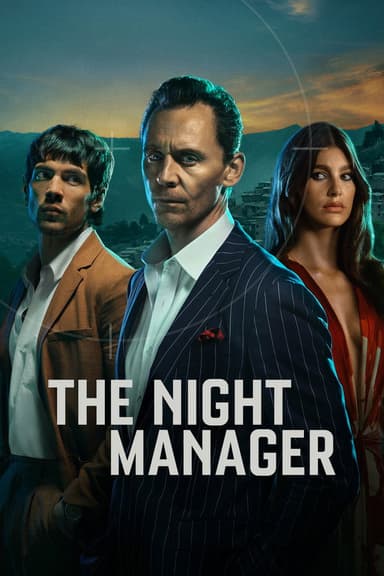
The Crow Road
1996 • Drama
History student Prentice returns home to attend his grandmother’s funeral. As the McHoan family gathers together to mark the solemn occasion, old disagreements continue to fester and old acquaintances are renewed. Following the unexpected death of another close relative, Prentice begins to question the past: why did his Uncle Rory suddenly disappear and where did he go? Reading his Uncle Rory’s unpublished novel may provide the answers he is seeking but it also unearths some dark family secrets he didn’t bargain for.
Why you should read the novel
Iain Banks' novel 'The Crow Road' offers a reading experience that far surpasses its television adaptation. The novel’s richly woven narrative, filled with intricate details and inner thoughts, gives readers unparalleled access to Prentice McHoan’s complex psyche. Nuanced subplots and philosophical musings are unfurled page by page, inviting you to lose yourself in the subtlety and depth only literature can provide.
Reading the source novel opens up a vivid tapestry of Scottish culture, landscape, and family, all depicted with Banks’ singular wit and warmth. The book's non-linear structure, shifting seamlessly between past and present, invites readers to become active participants in piecing together the mystery at the heart of the story. Such literary techniques create a more immersive and rewarding challenge than any passive viewing experience.
Above all, 'The Crow Road' as a novel is profoundly introspective, delving deeply into themes of memory, loss, and the search for meaning. Banks' prose brings to life a world brimming with emotionally resonant characters, making the act of reading a far richer and more enduring journey than simply watching the series. If you truly want to understand and explore the secrets of the McHoan family, the novel is indispensable.
Adaptation differences
One of the most significant differences between the 1996 TV adaptation and Iain Banks' original novel is the structure of the narrative. While the book employs a non-linear timeline, seamlessly weaving past and present to create a tapestry of memory and discovery, the series opts for a much more linear storytelling format. This change makes the mystery more explicit but sacrifices the unfolding puzzle-like experience that is central to the novel’s charm.
Character depth is another area where the adaptation diverges from the source material. The TV series, due to time constraints and the nature of the medium, necessarily simplifies or omits certain characters and their backstories. As a result, many secondary characters in the McHoan family come across as less nuanced or significant, and key internal conflicts faced by the protagonist, Prentice, are presented in a more straightforward manner.
The presentation of internal monologue and philosophical musings is also greatly reduced in the TV adaptation. In the novel, much of the emotional heft comes from Prentice’s introspective narration and his philosophical explorations on life and death, especially in regard to his missing uncle Rory. The television version, while atmospheric, struggles to translate these inner dialogues to the screen, resulting in a less introspective tone.
Finally, certain themes and scenes are adapted or toned down to suit television audiences. Subtle themes of existentialism, skepticism, and the nature of family are explored with more nuance and daring in the novel. The adaptation, while visually striking and true to the book’s spirit in many ways, inevitably compresses and sanitizes some content, making it more accessible but less thought-provoking than the bold original.
The Crow Road inspired from
The Crow Road
by Iain Banks










